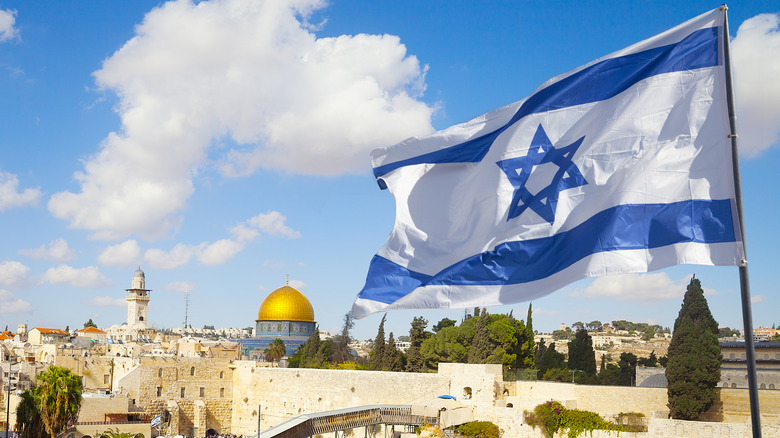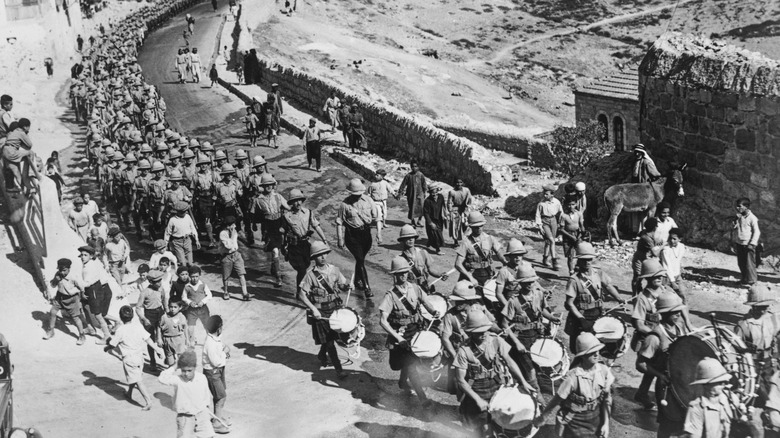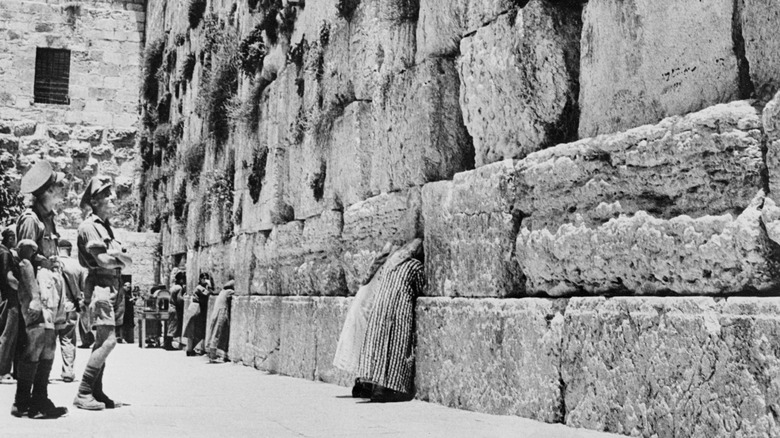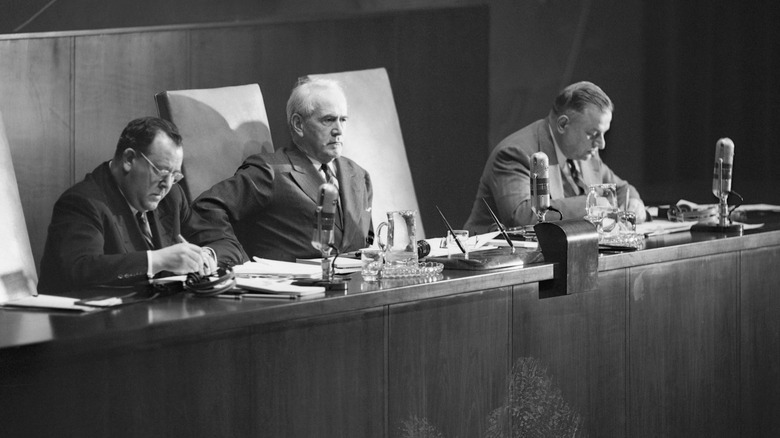How Israel Became A Country
The modern state of Israel has only existed since 1948, but the religious, cultural, and political forces that birthed it began to mingle in the 19th century. Per Britannica, that century was marked by a swell in antisemitism, frustrating assimilation efforts on the part of some Jews. It was also when nationalism, the ideology of pride and loyalty to the nation-state, developed into an organized school of thought. These developments encouraged emigration among the European Jewish population to Palestine, then under the authority of the Ottoman Empire.
As the original land of the Jewish people and the seat of the kingdoms described in the Bible, the land of Palestine had loomed large in Jewish identity ever since the mass expulsion of Jews from Judea by the Romans in the first century AD (per the Jewish Virtual Library). As the Jewish national movement known as Zionism took root in the 1890s, largely through the writings of Theodor Herzl, a Jewish state came to be seen as necessary for their survival, and Israel was considered as natural a place for the Jewish people as France was for the French (per Vox).
At the time, there were only around 20,000 Jews living in Palestine, international support for a Jewish state was lacking, and the Ottoman Empire had control over the region's major development of settlements by Jewish immigrants. But during World War I, Great Britain committed itself to establishing a Jewish homeland in the area, which it took administration of at war's end.
There were tensions between Arabs and Israelis from the beginning
Britain's commitment to a Jewish homeland in Palestine was motivated by many factors, from the earnest commitment to such a state as a moral right by the government of the day to exerting an influence in a key land bridge between British-controlled Egypt and India (per History). But efforts to that end were almost immediately complicated by the local Arab population, which had received guarantees from France during World War I according to Britannica. Britain's administration of Palestine effectively denied them self-government, and the influx of settlers was taken as a colonial project.
In the meantime, the number of Jewish immigrants into Palestine dramatically increased. According to Vox, the region's Jewish population was eight times what it was in the late 1800s by the time the Nazis came to power in Germany. Even before Adolph Hitler and World War I, pogroms in the Russian Empire had driven many Jews from Eastern Europe to their ancestral homeland. As these settlers came into conflict with the Arab population of Palestine, Britain's administration found it impossible to reconcile the two groups, and a final deliberation on Palestine's future was delayed.
Bouts of violence culminated in the Arab Revolt of 1936, which lasted three years and inspired the birth of several Jewish defense militias. The British, surprised at the intensity of the fighting, concluded that both groups' desires for Palestine amounted to "right against right" (via Britannica) and that the only way forward was deviding the land.
World War II further complicated the creation of a Jewish state
Before the Arab Revolt, Britain's stated commitment to a Jewish homeland didn't include an explicit call for a Jewish nation-state. After concluding (through a royal commission, per Britannica) that partition was the only way forward, that call was finally made in the open. Zionist campaigners were cautiously optimistic about partition, but the idea of dividing Palestine — and the mandatory relocation of Arabs within Jewish territory — only fueled the Arab Revolt. Proposed workarounds by the British satisfied neither side.
World War II only complicated matters. Seeking Arab support against the Axis Powers, Britain rescinded its previous support for Jewish immigration to Palestine in 1939. It also agreed that any Jewish homeland would have to exist within an independent Arab state of Palestine, to be considered within 10 years, and Jewish immigration and land transfer would be further limited after a 5-year period. The new policy outraged Jews and Arabs alike and left many Jews trapped in Nazi-controlled territory without refuge. Two refugee ships carrying Jewish passengers were sunk during the war, sparking terrorist reprisals on the British.
Despite the new policy, the Jewish community in Palestine largely supported Britain during the war. With limited exceptions, so did the Arab population. The population of both groups increased, and by the end of the war, there were around 600,000 Jews and 1 million Arabs in Palestine.
The United Nations established Israel in 1947
Campaigning for a Jewish state in Palestine revived in earnest after World War II, and revelations about the Holocaust helped to increase international support. According to the Anti Defamation League, Britain attempted to maintain its immigration restrictions on Jewish refugees from Europe, who sometimes met violent refusals when they attempted to enter Palestine. Weakened by war and unable to propose an acceptable solution to both Jews and Arabs, the British postwar government of Clement Atlee looked to the United States for help (per Britannica). The U.S. promptly pressured Britain to admit some 100,000 refugees and began exercising its influence in the area.
The problem was eventually referred to the United Nations. Per Vox, the U.N. proposed its own plan for partition in 1947. It called for two states in an economic union, with the majority of territory going to the Jewish population and Jerusalem becoming an international city. The proposal was accepted by a substantial majority of nations and by the Jewish population in Palestine, but it was met with resistance from the Arabs. Some elements of the Truman administration also opposed the recognition of a Jewish state, though President Harry Truman ultimately committed himself (per the Harry S. Truman Library and Museum).
The modern state of Israel was born on March 14, 1948. The new nation was almost immediately attacked by its Arab neighbors and hostile Palestinian forces. Through a series of wars and peace agreements, Israel secured its borders and expanded its territory, but a final diplomatic resolution to tensions with the Arab Palestinian population (who were left without a state) has proved elusive.



